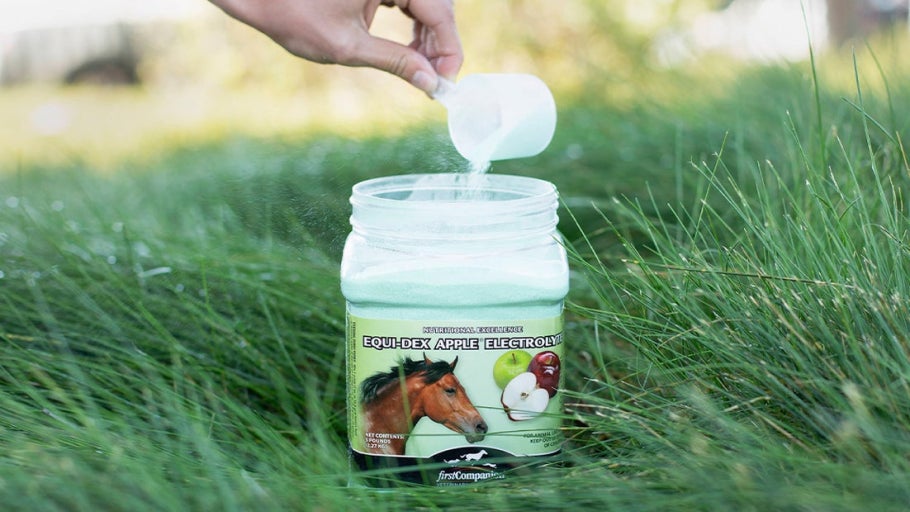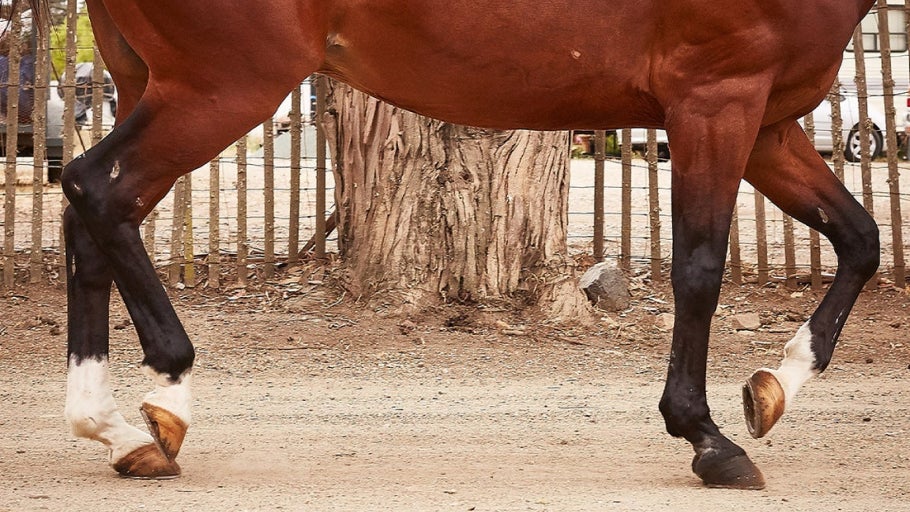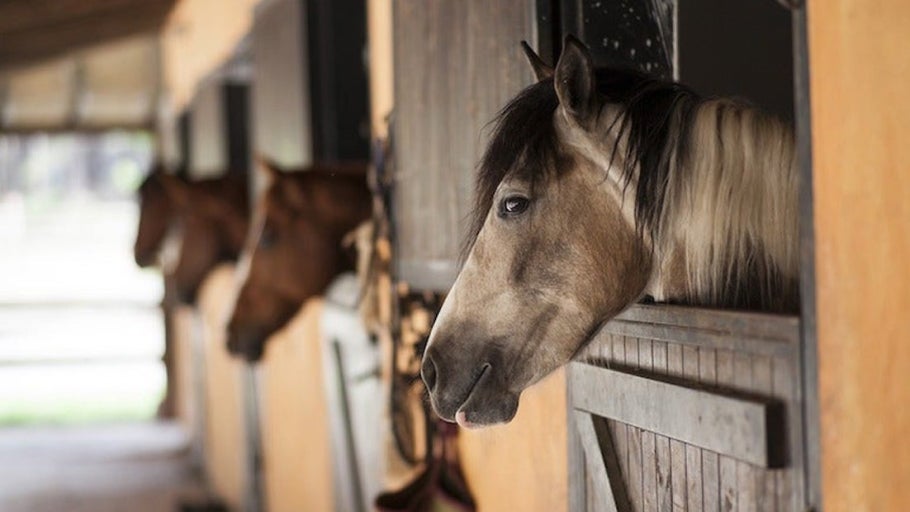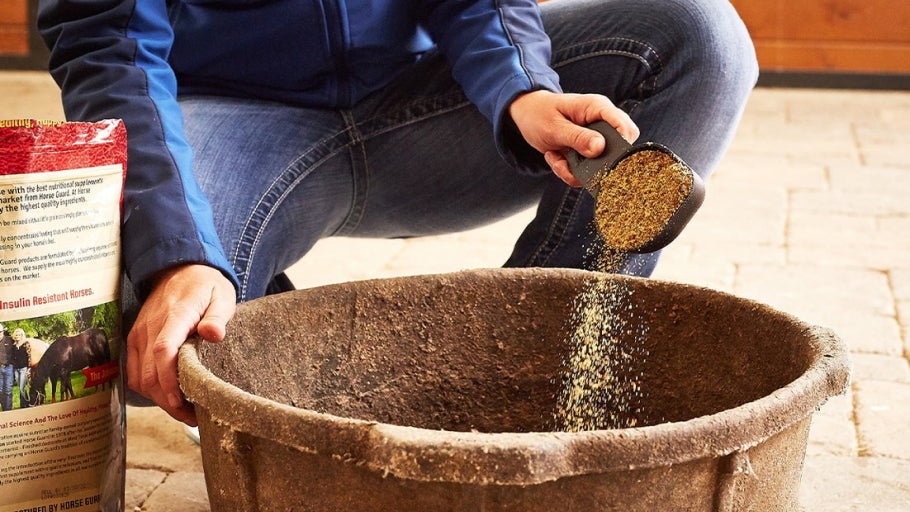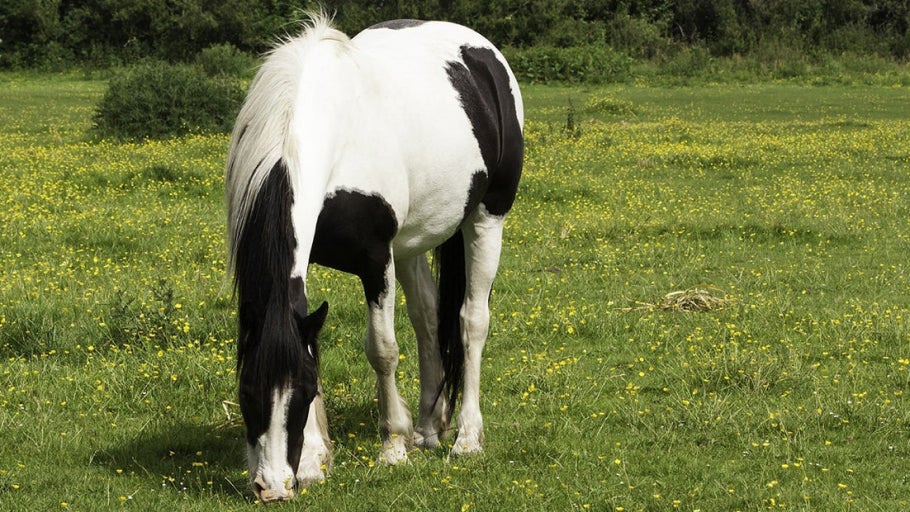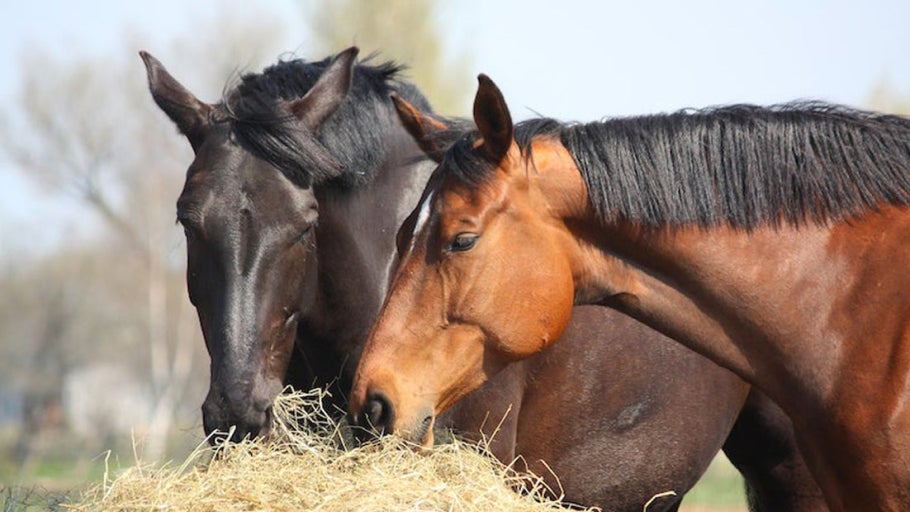
The Scoop on Equine Hoof Supplements
Whether your horse is a weekend trail partner or a top-level competitor, the saying "no hoof, no horse" holds true in the mind of every horse owner. The hoof serves as a blood pump for its respective leg; as blood travels down, it is sent back to the body as the horse steps. Healthy, strong hooves are the foundation for soundness, and we all know how detrimental weak or damaged hooves can be. While genetics, diet, and farrier care play critical roles in hoof condition, supplements can be used to help fill in the gaps. In this edition of The Scoop On Supplements, we will explain some common ingredients in hoof supplements and how they work to support hoof health.
Factors to Consider with Supplementation
Before jumping straight to a diet change, it is important to understand how your horse's body works on its own, without supplementation. Based on activity level, genetic predisposition, maintenance, and more, your horse could react differently than other horses in response to certain feeds and supplements. Listed below are important factors we encourage you to consider discussing with your veterinarian, as they all can impact your horse's body condition:
- Diet and Feed Quality: Your horse's diet is something you've already thought about if you're considering a supplement, but it's a good topic to discuss with your vet. It is important to make sure your horse is getting the appropriate nutrients they need for their age and workload. You should also consider the quality of feed your horse is consuming. Similar to quality, the type of feed can affect your horse's body condition. Different hay and grain types offer varying amounts of nutrients, and your vet can direct you to something missing (or in excess) in their diet.
- Weather and Location: If you live in a super dry and hot area versus a humid and wet one, your horse's hooves are bound to have differing reactions. Similar to people's hair, the amount of moisture in an environment will affect how a horse's hooves grow and maintain themselves. In dry areas, hooves can become brittle and cause cracks, splits, and crumbles. In wet areas, hooves are more susceptible to thrush, abscesses, and white-line disease. Check out our Horse Hoof Problems guide to learn more on treatment and prevention of these issues!
- Age: As horses get older, they often have a slower rate of hoof production. The farrier should still check them at the same trim cycle frequency, but they might take less hoof off with each visit.
- Other Health Conditions: Major health conditions like laminitis and foundering relate hoof health directly to diet and body weight. If there is any concern about underlying health issues in your horse, you should contact your veterinarian ASAP and come up with a plan of action!
Hoof-Building Ingredients
Horse hooves are made out of the same material as human nails and hair: keratin. Taking in the proper nutrients with keratinized tissue builders to promote collagen production can help horses and humans alike in their quest for perfect "nails." For humans, keratin-rich foods include broccoli, carrots, salmon, and much more! While we cannot feed all of these to our horses, auxiliary supplements come in to help fill in any gaps. Ingredients like the ones we list below can help produce new and healthy hoof growth, but please be aware that they aren't a quick fix for hoof that is already grown.
While all of these ingredients are vital to proper hoof health, it is important to know that too much of any one of them can negatively impact your horse and their ability to absorb other ingredients. Because of this, you only want to feed your horse a hoof supplement that complements their current diet rather than overloading it. To find out more about ingredients having inverse relationships, check out this article by The American Farriers Journal about Feeding the Foot.
Biotin:
Found in nearly all hoof supplements, biotin is a B vitamin. Biotin has a variety of functions in the body like other B vitamins, such as metabolism and nervous system support, as well as collagen and keratin formation. It has been shown to support hoof health when fed at amounts of 10-30mg per day, with higher amounts being suitable for weak or damaged hooves.
MSM:
A common ingredient in both joint and hoof supplements, MSM supports a healthy inflammatory response throughout the body. It also provides sulfur, which supports the cross-linking of keratin proteins for a strong hoof structure.
Minerals:
Zinc and copper are minerals that play a role in the maintenance of connective tissue and are commonly included in both hoof and coat supplements. They are both necessary for the building of keratin and have anti-oxidant properties to protect cells against damage.
Amino Acids:
A deficiency in essential amino acids (the building blocks of protein), can negatively impact hoof quality, hair coat, and overall health. Two amino acids typically included in hoof supplements are methionine and lysine. Both are sulfur-bearing amino acids that support strong hooves.
Hoof Growth with Supplements
If you're hoping for significant changes in your horse's hooves, remember that it takes time for the hoof wall to grow out and replace weak or damaged areas. Supplements can only support the growth of healthy and new hoof, not existing hoof, so it can take six months or longer to see improvement. Be patient - the results will be worth the wait!
Using a topical hoof treatment can help protect the hoof wall from further damage. Hoof sealants are best for wet weather as they help to keep moisture out. Hoof conditioners are great in dry climates by adding moisture and flexibility to a dry hoof. Note that these topical treatments are different than treatments for thrush or white line disease. Those topical treatments are meant to kill bacteria and fungi rather than prevent further issues.
Frequently Asked Questions
Do hoof supplements work? How long does it take for hoof supplements to work?
A good diet that meets all of your horse's nutritional needs can naturally correct some hoof problems over time, but most horses with hoof issues will benefit from a hoof supplement being added to provide more support with targeted ingredients that fill in any nutrient deficiencies. It typically takes about 6-8 months of consistently feeding a hoof supplement for results to be obvious, but your farrier might see a gradual difference with each visit.
How can I toughen up my horse's feet to make them stronger?
Begin with a diet tailored to your horse's breed, age, and workload. A good diet includes access to fresh, clean water 24/7 and appropriate amounts of vitamins and minerals. Adding a hoof supplement is a good option and can benefit most horses with subpar hooves. Depending on the weather and condition of your horse's hooves, a topical conditioner or sealant can help too. Other options include hoof sole paints and hardeners, but it is always a good idea to get your treatments approved by your farrier before incorporating them into your routine (especially if you have concerns). Keep your horse's environment as clean and dry as possible to promote optimal hoof health.
Does Epsom salt help with poor hoof condition?
Epsom salt is used to draw out infections from hoof issues, like abscesses. Other than this use, it has no other benefits to help a horse's overall hoof health.
Does my horse need to see a farrier?
Absolutely! Barefoot or shod, your horse needs to see a farrier on a routine basis. A farrier helps to keep the horse's feet in balance to be able to correctly and comfortably hold their entire body weight. Farriers are also able to spot problems quickly, and they can steer you to possible solutions before the matter gets out of hand. Depending on your horse's hoof condition, your farrier may recommend a particular hoof supplement.
Should my horse be barefoot or wear shoes?
Whether you are feeding a hoof supplement or not, this is a decision for you and your farrier (and perhaps your vet) to make. Different horses do well with different set-ups based on their natural build, workload, and environment. If your horse is barefoot but needs a bit more protection, check out our Best Horse Hoof Boots!
Closing Thoughts
Hoof health will quite literally make or break your horse's well-being. While they seem like the toughest part of the horse's body, hooves are a delicate structure that can easily be thrown off kilter. Giving your horse the best chance with a proper diet, routine farrier maintenance, and daily hoof care can save you time, money, and effort in the long run. Plus, it will help save your horse from a lot of potential discomfort!
While there is no perfect hoof supplement, there are many options that can help your horse feel and look their best! If you have any questions regarding your specific horse's diet and health, we strongly suggest that you reach out to your vet or an equine nutritionist. For questions regarding supplement products, please contact our customer service by calling 1(800)620-9145 or by emailing info@ridingwarehouse.com. Happy riding!
Further Reading
We understand that you may want to do more research on horse diet/nutrition and its related conditions. That's why we compiled some great sources below, so you can take a deeper dive!
- Life Data Labs on Overly Dry Hooves
- Penn State on Horse Management During Wet Weather
- University of Minnesota on Caring for Your Horses' Feet
- American Farriers Journal on Feeding the Foot
Related Articles

